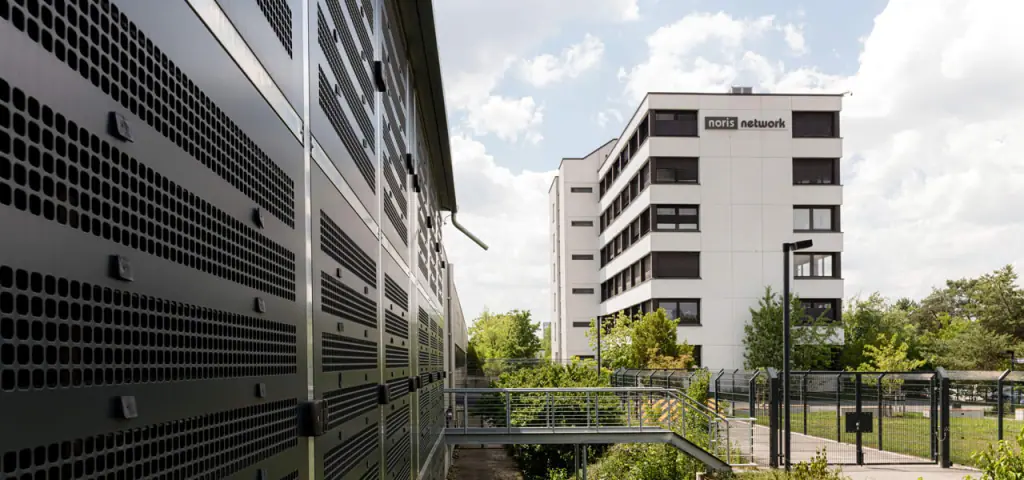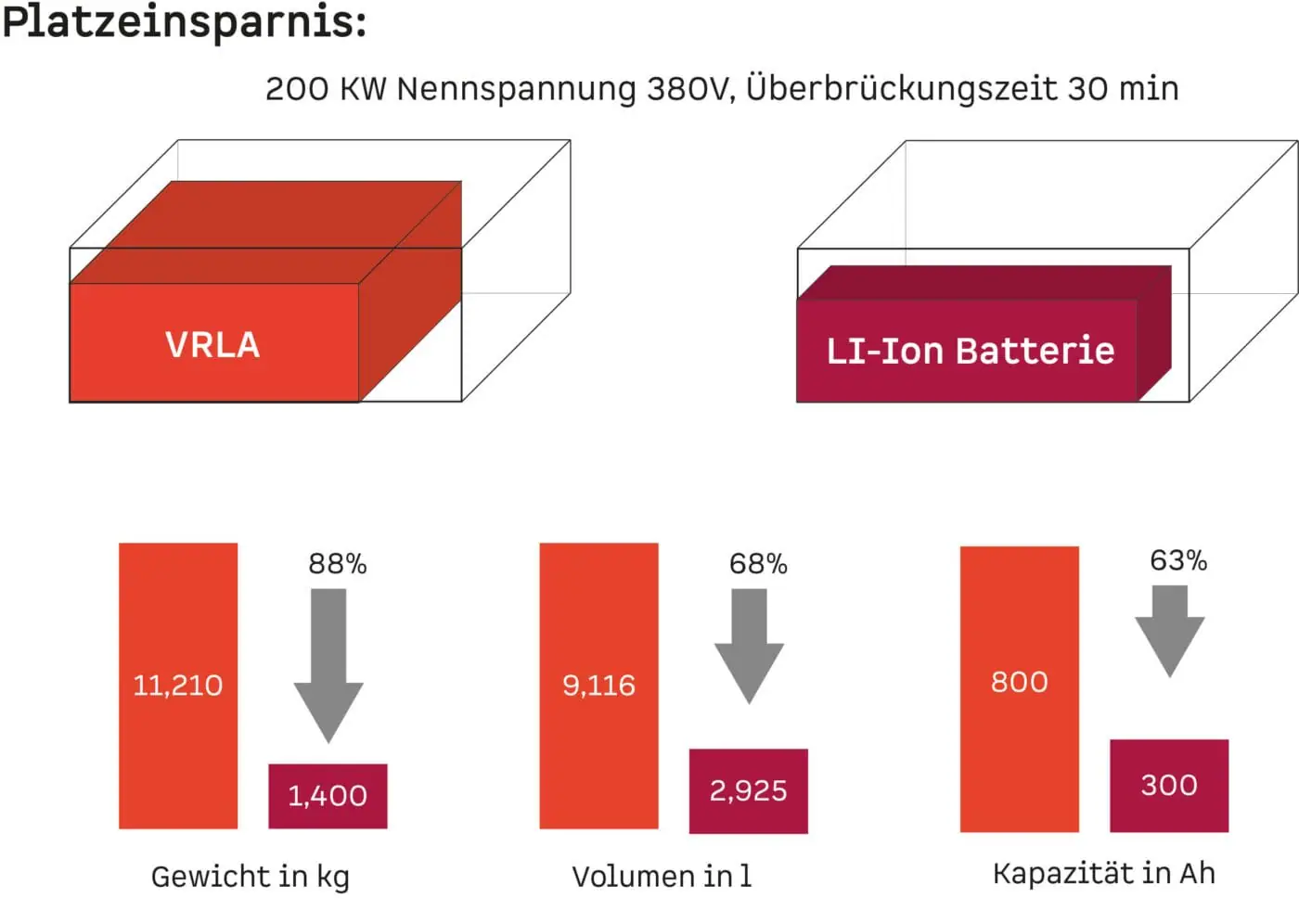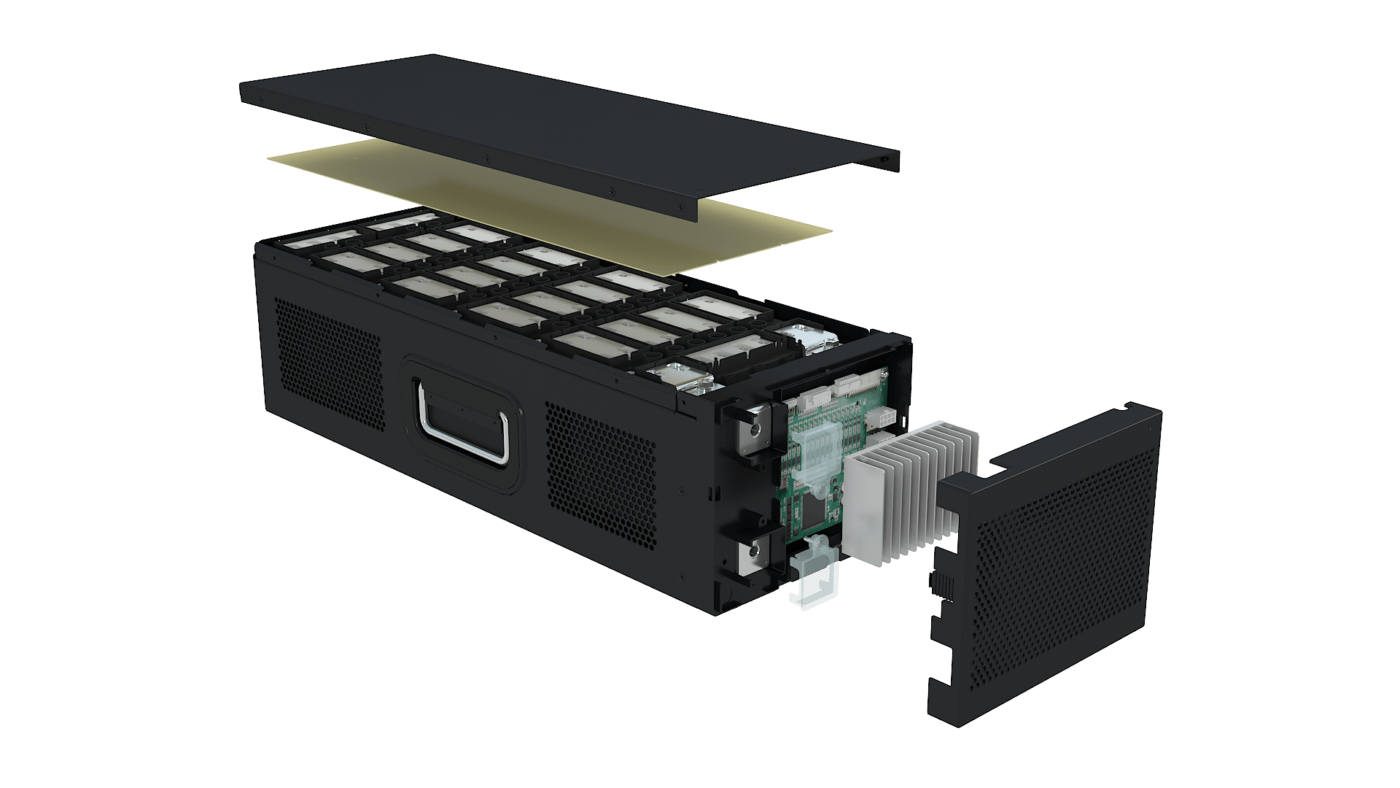Innovation & sustainability - the future of the data center

Future-oriented protection for data centers by Wöhrle
Availability is the most important asset for a modern data center. noris network AG secures the power supply in the new Nuremberg data center with a modern, lithium-ion-supported UPS system from Wöhrle Stromversorgungssysteme. This storage technology offers significant advantages thanks to its physical properties as well as in terms of energy efficiency and cost-effectiveness. Few industries are subject to such rapid innovation cycles as information technology. This also applies to areas that tend to remain hidden.
away from the focus of analysts and the press. One such area is the secure power supply. Nothing works without electricity, neither at home nor in the large data centers of organizations and hosting providers. However, driven by cross-industry trends such as sustainability and energy efficiency, traditional concepts are being replaced here too. Manufacturers of uninterruptible power supplies (UPS), key components for the availability of IT equipment, are breaking new ground with the use of lithium-ion batteries instead of traditional lead-acid batteries.
The data center professionals at noris network AG, a provider of tailor-made information technology and telecommunications solutions (ITC) in the areas of IT outsourcing, managed services, cloud services and network & security, have opted for the latest Li-ion technology for a new project, thereby following the signs of the times. The fact that noris network AG, with its high standards of supply security, is taking this step also has to do with its partner Wöhrle. The two companies have a long-standing partnership - safe and innovative solutions have already been implemented in joint projects. Constant innovation is a major strength of Wöhrle Stromversorgungssysteme GmbH.
Thanks to many years of experience in the construction of power supply technology, modern and sustainable projects have been implemented time and again in this traditionally conservative sector.
Who is noris network
Nuremberg-based noris network AG is an owner-managed German colocation and cloud provider with four of its own data centers in Germany. It offers companies and organizations with a focus on the banking/insurance, automotive/industry, software development and public administration sectors tailor-made ICT solutions in the areas of IT outsourcing, managed services, cloud services and network & security. The technological basis is a high-performance IT infrastructure with noris network's own high-security data centers, including Nuremberg South and Munich East, two of the most modern and energy-efficient data centers in Europe.
Innovation and sustainability in the data center
noris network AG has been in close contact with the technology company since 2015 and already relies on its UPS systems in several data centers. It was therefore clear early on that the two companies would also work together on the new Nuremberg data center from the outset. From the very first discussions, innovation was the common thread that guided both companies. It was clear that the solutions for securing the power supply should use modern energy storage systems. Markus Steiner, Technical Manager at Wöhrle Stromversorgungssysteme, remembers the first meetings well: "We talked about the great potential of lithium-ion energy storage systems right from the start. This was well received by the innovative decision-makers at noris network AG and we therefore consistently pushed ahead with our planning in this direction."
We keep a close eye on what is happening in the world and on the market. Sustainability has been a standard requirement for decades. We also have to ensure safe, affordable and reliable operation. Energy efficiency and availability are, so to speak, squaring the circle, which we have only achieved with a strong and innovative partner like Wöhrle.
Florian Sippel, COO, noris Network AG
Into the future with Li-ion
Lithium-ion batteries improve practically all the key data of an uninterruptible power supply. The most obvious are the physical data: Lithium-ion storage systems require only around 30 percent of the space of a lead-acid battery with the same energy density and do not need to be vented. The weight is also reduced by two thirds when using a lithium solution compared to a lead-acid battery with the same capacity.
This means that construction planning is much more relaxed and more space is available for the core business. In addition, the temperature range in which a lithium-ion battery can be operated is significantly greater at 0 to 40 degrees Celsius. In addition, the charging time is a quarter shorter and there are considerably more possible charging cycles (up to 5000 instead of 300-500 for lead batteries). The capacity loss is almost linear. Incalculable changes in capacity are prevented in lithium-ion batteries by the built-in battery management system (BMS). The control logic, with which each cell is equipped, displays the exact battery status at all times using the values of voltage, current, number of cycles, temperature and internal resistance and actively regulates the optimum charging of the cells. This significantly reduces maintenance costs when using Li-ion batteries compared to lead batteries. With a lead-acid battery, a BMS is optional and can only be implemented at high cost.
Economic efficiency over the service life
Economic efficiency plays a major role for a commercial provider of ICT services such as noris network AG. The power supply must also make sense from a business perspective. This is where Wöhrle's solution can score points in the long term. Although the acquisition costs in mid-2020 were around 20 % higher than for a comparable system with lead-acid batteries, this additional expense is not only put into perspective over the service life, but in the end even results in a clearly positive TCO (total cost of ownership). Up to 35 % lower total costs due in large part to the significantly longer service life of the energy storage units as well as savings in cooling and the elimination of the ventilation system. In the past, Wöhrle has already had good experience with the profitability of the new generation of energy storage systems "The TCO consideration is positive due to the more attractive prices, especially as individual cell monitoring is already integrated in lithium storage systems. With the lead variant, it would have to be installed and maintained additionally, which results in higher operating costs," says Markus Steiner.
Lithium batteries have a longer service life compared to conventional lead technology in data centers, are more cycle-resistant and are therefore also suitable as balancing energy for peak load capping.
Markus Steiner, CTO,
Wöhrle Stromversrougngssystme GmbH
Redundant design - the solution for the data center
The new data center of noris network AG was designed according to an energy cell concept. Consumers with a combined power requirement of one megawatt are installed in each cell. Protection is provided by a dedicated Wöhrle WISUS-MS UPS system, which is based on a UPS system from the manufacturer Huawei, together with the WISUS-Li, the modular Li battery storage solution for the UPS system. Redundancy is a design concept that runs through the entire system. The UPS systems have a modular plug-in design and the total power is supplied by two system cabinets. With the WISUS-MS, eight parallel units can be connected to form a system with a total output of 6.4 MW. A total of two power modules can be
thanks to the n+1 configuration, without jeopardizing the guaranteed total power for the energy cell. The WISUS-Li energy storage units are distributed across six cabinets with a good 41 kWh per cabinet, which gives the UPS system a bridging time of 10 minutes per energy cell at full load. Because not all Li-Ion is the same, the specific battery design is also very important. For the WISUS-Li, Wöhrle uses lithium iron phosphate cells (LiFePO4). They are chemically very stable and insensitive to damage. The risk of fire is very low; spontaneous combustion, often the most important argument against the use of Li-ion technology, only occurs above 600 degrees Celsius. The next largest series, the WISUS-Li76, already has a fire extinguishing system at cell level - and therefore offers comprehensive system safety
Conclusion and experience
The new NBG6-BA2 data center in Nuremberg has now been running productively for over a year. Installation, set-up and testing of the Li-ion UPS systems went without a hitch. Florian Sippel summarizes the most important impressions: "The advantages of the higher power density, as well as the lower weight and space requirements, clearly speak in favour of lithium technology. And for us, cost-effectiveness over the service life is decisive. Li-ion has clearly won here." The high efficiency of the WISUS-MS of up to 97 percent in online double-conversion operation, as well as the simple maintenance and expansion of the system during operation (hot-swap capability) also contribute to this. The uncomplicated remote maintenance through the network connection of the UPS system via SNMP and Modbus-TCP is also a positive feature. It provides noris network AG's operating personnel and Wöhrle's technicians with a clear status of the system at all times and quick access in the event of service requests. In projects like this, the choice of partner clearly determines success or failure: "In Wöhrle, we have found a partner who takes the safe route with us," says Florian Sippel. "The company was able to convince us with its overall concept, in which delivery, installation, operation and sustainable maintenance all come from a single source."



